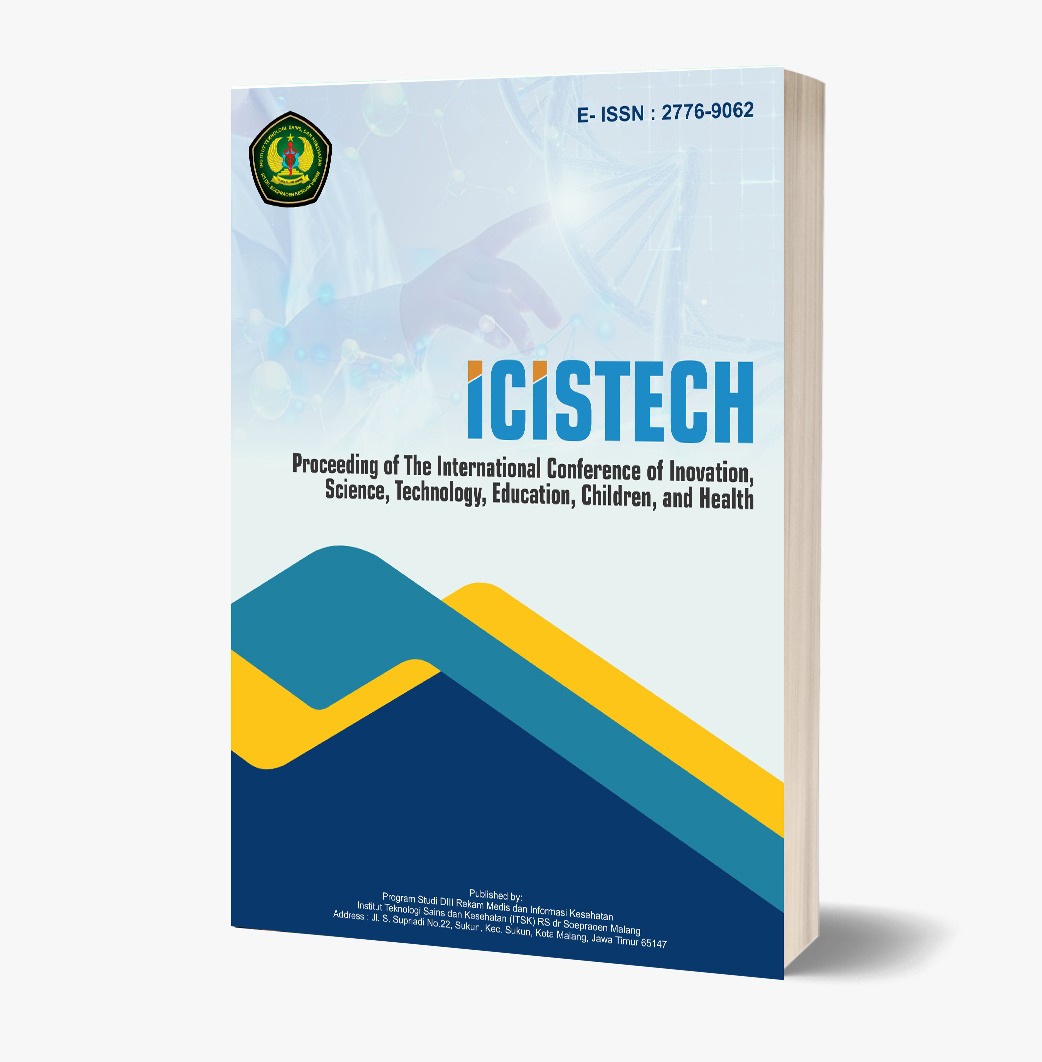Factors Influencing Indonesian Students' Performance on PISA 2018
DOI:
https://doi.org/10.62951/icistech.v4i1.78Keywords:
Indonesia, Linear Regression, Mathematics, Reading, Science, PISA 2028Abstract
Education plays a pivotal role in national development, and assessing its quality is crucial. One widely recognized international assessment is the OECD's PISA, which evaluates mathematics, science, and reading abilities among 15-year-old students globally. In 2018, Indonesian students scored below the OECD average, highlighting deficiencies in the education system. This study investigates the determinants influencing Indonesian students' PISA scores using 2018 data. Multiple linear regression is employed to analyze three models: mathematics, science, and reading scores as dependent variables. Independent variables include age, gender, study time in mathematics, science, and reading, economic, social, and cultural status, family wealth, home ICT ownership, teacher feedback, and school discrimination perception. The findings reveal varying influences on PISA scores across domains: age does not affect mathematics scores, gender does not affect science scores, and all variables significantly impact reading ability scores at the 5% confidence level.
References
Acosta, S. T., & Hsu, H. Y. (2014). Negotiating diversity: An empirical investigation into family, school, and student factors influencing New Zealand adolescents’ science literacy. Educational Studies, 40(1), 98-115.
Barnard-Brak, L., Lan, W. Y., & Yang, Z. (2018). Differences in mathematics achievement according to opportunity to learn: A 4pL item response theory examination. Studies in Educational Evaluation, 56, 1-7.
Berger, K. S. (2014). Invitation to the Life Span (2nd ed.). Macmillan.
Cresswell, J. W., & Cresswell, J. D. (2018). Research Design: Qualitative, Quantitative, and Mixed Methods Approaches (5th ed.). Sage.
Creswell, J. W. (2012). Educational Research: Planning, Conducting, and Evaluating Quantitative and Qualitative Research (4th ed.). Merill.
Feliciano, D., López-Torres, L., & Santín, D. (2021). One laptop per child? Using production frontiers for evaluating the Escuela 2.0 program in Spain. Mathematics, 9(20), 2600.
Gamazo, A., & Martínez-Abad, F. (2020). An exploration of factors linked to academic performance in PISA 2018 through data mining techniques. Frontiers in Psychology, 11, 575167.
Gamazo, A., Olmos-Migueláñez, S., & Martínez-Abad, F. (2016, November). Multilevel models for the assessment of school effectiveness using PISA scores. In Proceedings of the Fourth International Conference on Technological Ecosystems for Enhancing Multiculturality (pp. 1161-1166).
Martínez-Abad, F. (2019). Identification of factors associated with school effectiveness with data mining techniques: Testing a new approach. Frontiers in Psychology, 10, 2583.
Mora, T., Escardíbul, J. O., & Di Pietro, G. (2018). Computers and students’ achievement: An analysis of the One Laptop per Child program in Catalonia. International Journal of Educational Research, 92, 145-157.
OECD. (2019). PISA 2018: Insights and Interpretation. OECD Publishing.
OECD. (2023). PISA 2022 Results (Volume I): The State of Learning and Equity in Education. OECD Publishing.
Perelman, S., & Santín, D. (2011). Measuring educational efficiency at student level with parametric stochastic distance functions: An application to Spanish PISA results. Education Economics, 19(1), 29-49.
Salas‐Velasco, M. (2020). Assessing the performance of Spanish secondary education institutions: Distinguishing between transient and persistent inefficiency, separated from heterogeneity. The Manchester School, 88(4), 531-555.
She, H. C., Lin, H. S., & Huang, L. Y. (2019). Reflections on and implications of the Programme for International Student Assessment 2015 (PISA 2015) performance of students in Taiwan: The role of epistemic beliefs about science in scientific literacy. Journal of Research in Science Teaching, 56(10), 1309-1340.
Smith, P., Cheema, J., Kumi-Yeboah, A., Warrican, S. J., & Alleyne, M. L. (2018). Language-based differences in the literacy performance of bidialectal youth. Teachers College Record, 120(1), 1-36.
Ulkhaq, M. M. (2021). Efficiency analysis of Indonesian schools: A stochastic frontier analysis using OECD PISA 2018 data. In 2nd International Conference on Industrial Engineering and Operations Management Asia Pacific Conference, Surakarta, Indonesia.
Ulkhaq, M. M. (2022a). The determinants of Indonesian students’ mathematics performance: An analysis through PISA data 2018 wave. In Proceedings of the First Jakarta International Conference on Multidisciplinary Studies Towards Creative Industries (p. 200). European Alliance for Innovation.
Ulkhaq, M. M. (2022b). Faktor-faktor yang mempengaruhi prestasi bahasa siswa Indonesia: Analisis melalui PISA data 2018. In Wijayakusuma National Conference (WiNCo) (pp. 62-67).
Ulkhaq, M. M. (2022c). Apakah kepemilikan ICT di rumah mempengaruhi nilai matematika siswa Indonesia? Analisis melalui data PISA 2015. In Prosiding Seminar Nasional Pendidikan Biologi (Vol. 8, pp. 119-125).
Ulkhaq, M. M. (2022d). Apakah ICT mempengaruhi nilai sains siswa Indonesia? Analisis melalui data PISA 2018. In Prosiding National Seminar on Accounting, Finance, and Economics (NSAFE) (Vol. 2, No. 8).
Ulkhaq, M. M. (2023a). The determinants of Indonesian students' mathematics performance: An analysis through PISA data 2018 wave. In Proceedings of the 1st Annual Conference of Islamic Education (Vol. 714, pp. 115-124).
Ulkhaq, M. M. (2023b). The determinants of Indonesian students’ science performance: An analysis through PISA data 2018. In Proceeding International Conference on Religion, Science and Education (Vol. 2, pp. 1061-1066).
Ulkhaq, M. M. (2023c). Apakah kepemilikan ICT di rumah mempengaruhi nilai sains siswa Indonesia? Analisis melalui data PISA 2015. In Proceeding Konferensi Integrasi Interkoneksi Islam dan Sains (KIIIS) (Vol. 5, pp. 75-80).
Ulkhaq, M. M. (2023d). Determinan pencapaian siswa bidang matematika: Perbandingan antara Indonesia dan Singapura. Jurnal Inovasi Pembelajaran Matematika: PowerMathEdu, 2(1), 9-16.
Willms, J. D. (2010). School composition and contextual effects on student outcomes. Teachers College Record, 112(4), 1008-1037.
Wiseman, A. W. (2013). Policy responses to PISA in comparative perspective. In PISA, Power, and Policy: The Emergence of Global Educational Governance (pp. 303-322).
Zhu, Y., & Kaiser, G. (2020). Do East Asian migrant students perform equally well in mathematics? International Journal of Science and Mathematics Education, 18, 1127-1147.
Downloads
Published
How to Cite
Issue
Section
License
Copyright (c) 2024 Proceeding of The International Conference of Inovation, Science, Technology, Education, Children, and Health

This work is licensed under a Creative Commons Attribution-ShareAlike 4.0 International License.













